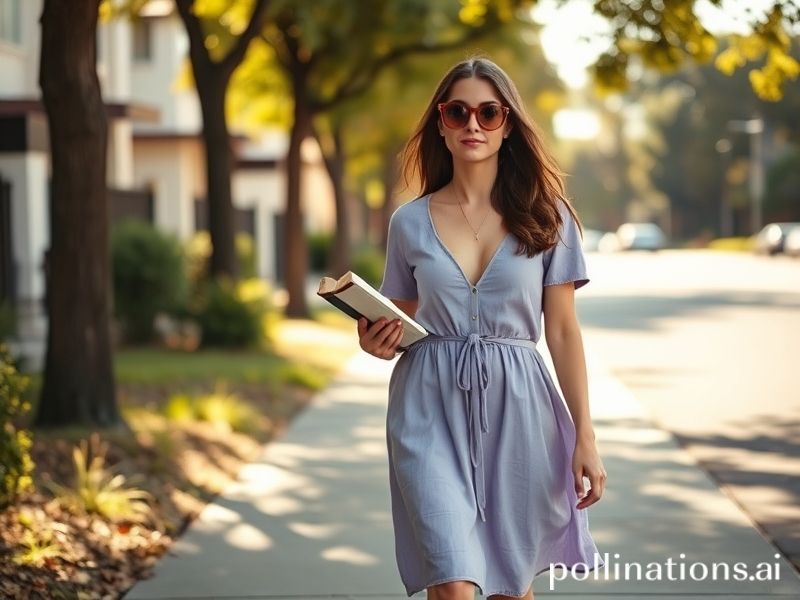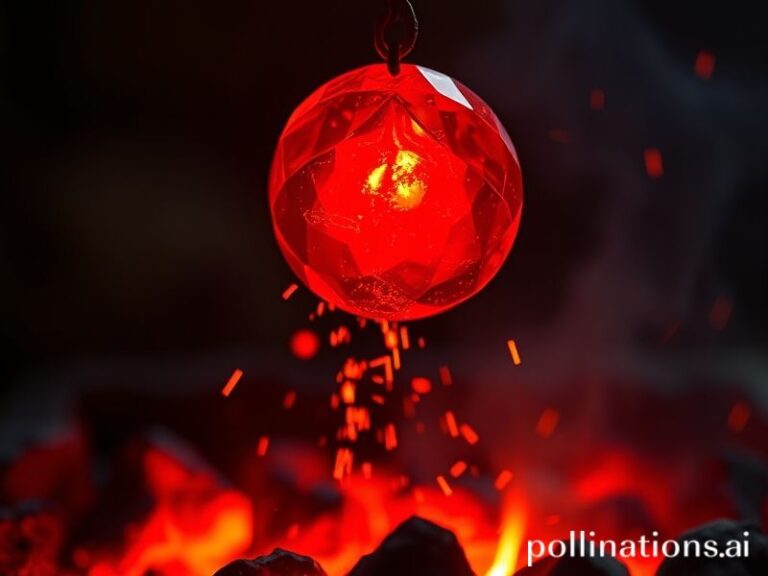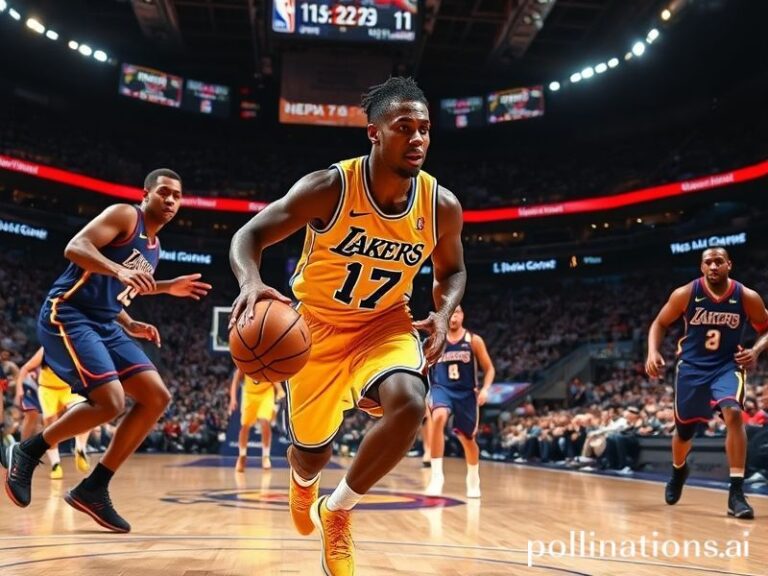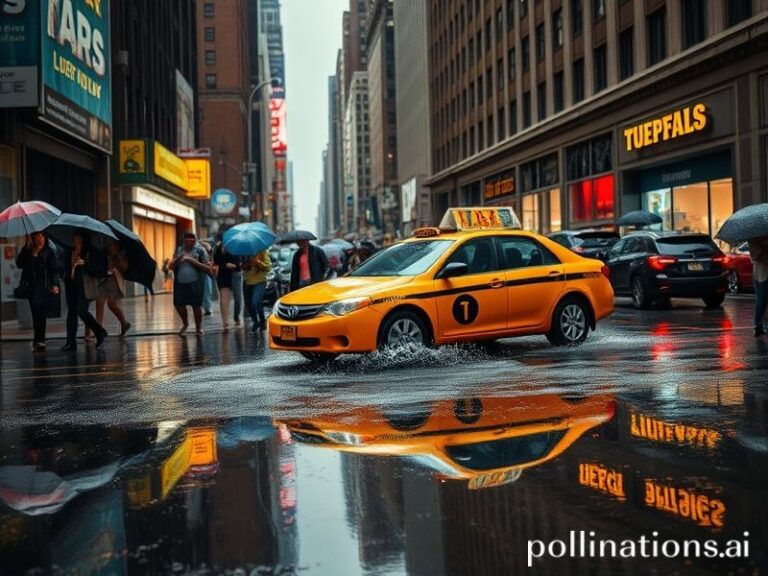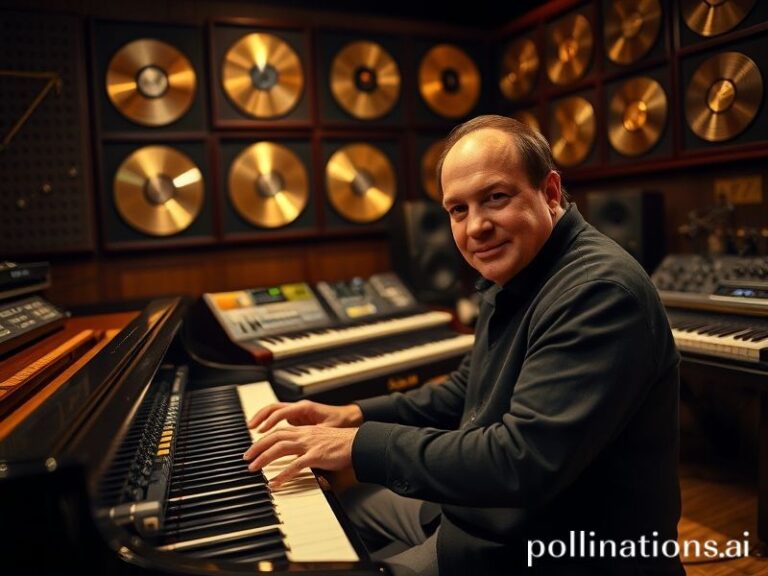Global Mask Diplomacy: How Violet Affleck’s Face Covering Became a Geopolitical Flashpoint
Violet Affleck, age 18, has lately been sighted in New York wearing a surgical mask. In saner centuries this would have rated a shrug; in 2024 it is being monitored with the same global intensity once reserved for missile tests. Why does a teenager’s facial accessory now warrant the sort of multilingual push-alert that used to accompany coups d’état? Because we have collectively agreed, in our infinite wisdom, that the children of celebrities are sovereign states. Like Luxembourg, only with better lighting.
From the glass towers of Singapore to the café terraces of Lisbon, the Violet Afflektometer (patent pending) is pinging. Japanese variety shows run slow-motion replays of her masked stroll, complete with the somber string section normally reserved for typhoon coverage. Brazilian TikTokers debate whether the mask is haute couture or political protest, while German tabloids assign it an 87-percent probability of pregnancy, climate anxiety, or both. Somewhere in Lagos, a start-up is already selling knock-off “Violet Masks” for the equivalent of three days’ wages. Supply chains, like gossip, are wonderfully democratic.
This is what globalization has come to: when an American teen sneezes, the world updates its risk portfolio. In a saner timeline we would be tracking carbon levels or antibiotic resistance, but carbon doesn’t have Ben Affleck’s jawline, so here we are. The same algorithmic bloodstream that once moved spices and subprime mortgages now ferries speculation about a freshman at Yale’s facial attire. It is comforting, in a bleak sort of way, to know that late-stage capitalism has finally achieved what the United Nations never managed—a truly universal language. Its vocabulary is limited to “Who?”, “Wore?”, and “What does it mean for spring?”
Of course, there are geopolitical implications. South Korea’s fashion houses are pivoting entire production lines to pastel respirators, betting that Violet’s choice will trickle sideways into K-pop stylists’ mood boards within a fortnight. Meanwhile, the French government—never one to miss a chance at cultural protectionism—has convened an emergency committee to ensure that any mask trend originating outside the hexagon be labeled “inspired by Paris.” The Quai d’Orsay has reportedly drafted a strongly worded communiqué, suitable for leaking to Le Monde by Thursday.
The darker joke is that Violet, whose only verified crime is being born to two Academy Award winners, is now a public-health Rorschach test. In the United States the mask is read as either prudent pandemic hygiene or an elitist micro-aggression against the unmasked working class, depending on which cable channel your parents hate-watch. British pundits detect a subtle Brexit metaphor: something about choosing isolation while still expecting the world to care. Australian commentators have compared the mask to their own country’s ongoing fire season—an attempt, perhaps, to filter the smoke of a burning planet through tasteful linen.
And yet, the planet keeps turning. While we Zoomers and Boomers argue over a square inch of cotton on an heiress’s face, the Arctic Circle recorded its first July rain at the summit last week—an event that failed to trend because it lacked cheekbones. Somewhere in the Horn of Africa, a generation is growing up without ever having seen a mask worn voluntarily; they wear them to keep the sand out of their lungs. Perspective, like cheap airfare, remains unevenly distributed.
So what is the broader significance of Violet Affleck’s mask? Simply this: we have built a world so interconnected that a teenage girl’s accessory choice can goose supply chains, move markets, and inspire a thousand think pieces, while the same machinery struggles to deliver vaccines to refugee camps. It’s globalization as tragicomedy—Shakespeare rewritten by an influencer’s algorithm. The mask itself is irrelevant; the fact that we cannot look away is the diagnosis.
Conclusion: In the end, the mask will come off, the paparazzi will find a new patch of exposed skin to fetishize, and Violet will presumably finish college. The rest of us, however, are stuck with the surveillance apparatus we’ve trained on an 18-year-old’s face. Until we redirect that obsessive lens toward the melting ice sheets or the next plague—both decidedly unphotogenic—the joke remains on us. And unlike Violet, we can’t just slip on a mask and stroll away from the frame.

